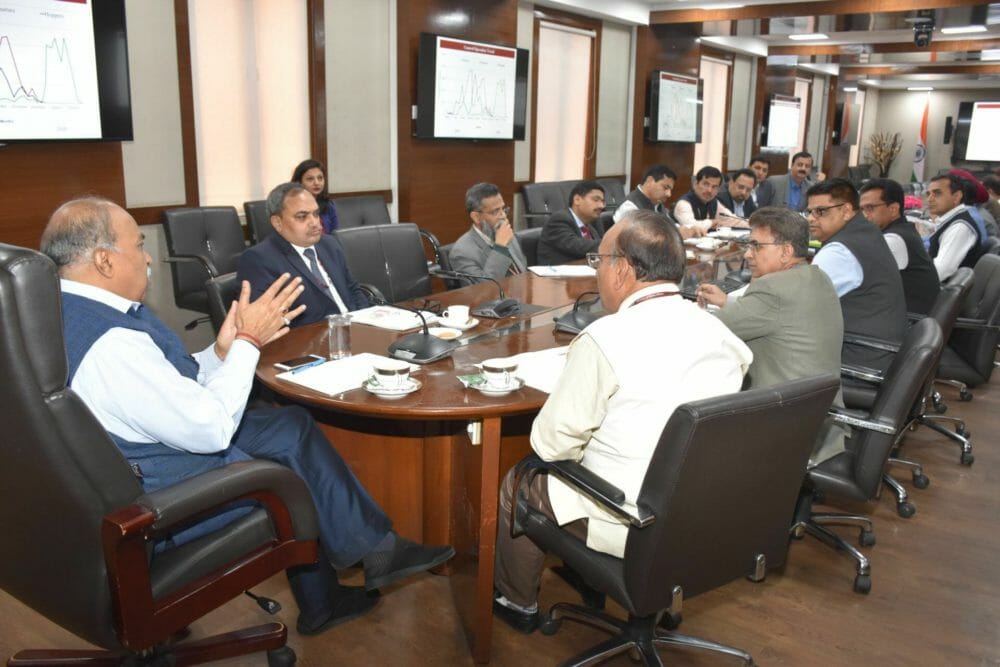A set of new laws aimed at reforming India’s agricultural sector will be a boon to smallholder farmers and agritech startups alike, the country’s agriculture secretary told AFN.
Sanjay Agarwal, secretary at the Ministry of Agriculture and Farmers Welfare, said in an interview that three ordinances being introduced by the Indian government represent a “major, major change” to the way farmers interact with the wider agri-commodities market.
Opening up the supply chain
The government has amended India’s Essential Commodities Act of 1955 to remove restrictions on the amount of food that intermediaries in the supply chain are allowed to stockpile.
The act originally gave the government power to set limits with a view to controlling the supply of foods which are considered ‘essential.’ However, many stakeholders felt the law forced farmers to accept low prices for their produce, and discouraged commodity traders and others from making larger investments in the space.
The amendment will exempt food processors and other supply chain players from these restrictions, while key crops like cereals, oilseeds, onions, potatoes, and pulses can be removed from ‘essential commodities’ lists.
“This gives an assurance to investors that they can invest in the agricultural supply chain” in areas such as logistics and storage tech, Agarwal said.
Contract farming: Making it official
A new law — the ‘Farmers (Empowerment and Protection) Agreement on Price Assurance and Farm Services Ordinance’ — essentially creates a legal basis for contract farming, allowing large agribusiness corporates, food companies, and investors to sign deals with farmers and get them to grow the crops they need.
But with little in the way of formal legal structures to govern these relationships, corporates and smallholders alike are often reluctant to enter into such contracts. The new ordinance is aimed at providing such a framework.
“Right now, there is no uniform ecosystem wherein a food processing company or a wholesale buyer, for example, can have farmers grow produce of high value without [them] having to take on high risk. The ordinance has created an agreement [so that farmers can] engage with agribusiness firms, and large retailers of farm services, in the sale of future farm produce,” Agarwal said.
More selling options for farmers; online trading opens up
Perhaps the biggest change for agritech entrepreneurs is the new ‘Farmers’ Produce Trade and Commerce (Promotion and Facilitation) Ordinance.’ This effectively ends the monopoly that state-run or state-authorized mandis (agri-commodity markets) have on buying produce from farmers and selling it on downstream. It also removes barriers for interstate trading of agricultural produce by ending the requirement for buyers to be registered locally. Taken together, the hope is that these reforms will give farmers more options for selling, giving them a better chance of getting a fair price for their produce.
The new law “provides freedom to the farmer,” Agarwal said. “Outside of the mandis, they can now sell to anybody. Suddenly the the whole market opens up, and it creates an ecosystem where farmers and traders enjoy freedom of choice.”
Importantly from a tech perspective, the ordinance makes it possible for businesses to set up online trading platforms to buy directly from farmers and sell their produce to intermediaries or consumers, rather than having to go via the state-run mandi system.
“Any electronic trading and transactional platform can now operate for trading of these commodities and produce,” the agriculture secretary said. “No license or registration [is needed]; they just have to declare how they will [achieve it].”
“Farmers’ income should increase [and] the rural economy overall will get a big push — insurers, transporters, food processors — this whole ecosystem will open up in villages and create wealth for them,” he added.
Anuj Maheshwari, managing director of agribusiness at Temasek, told AFN that the Singaporean state-owned company — which is among the most active investors in India’s startup ecosystem — “welcome[s] measures to streamline the food and agriculture supply chain in India,” adding that the reforms “will help with much needed digital adoption and also reduce wastage.”
“As global demand for food grows, there are immense opportunities for investors, businesses, and governments to work together and build more resilient and sustainable food systems. As a long-term investor, we aim to put our capital to good use by enabling the sustainable growth and development of these agrifood technologies and companies,” he said.
Agarwal and Maheshwari will be participating as panelists during a webinar on the new reforms hosted by commodities trading portal AgriBazaar.
The webinar, ‘Landmark reforms in Indian agriculture,’ takes place between 7pm and 9pm Indian Standard Time (9:30 am — 11:30 am US Eastern Time), 25 June. The full panel is:
- Sanjay Agarwal, secretary, agriculture, Government of India
- Atul Chaturvedi, secretary, animal husbandry, Government of India
- Anuj Maheshwari, managing director, agribusiness, Temasek
- Srini Nagarajan, managing director and head of Asia, CDC
- Rajeev Ranjan, secretary, fisheries, Government of India
- S Sivakumar, group head, agri & IT businesses, ITC
- Pushpa Subrahmanyam, secretary, food processing industries, Government of India
- Balram Yadav, managing director, Godrej Agrovat
- Akhilesh Tilotia, head, strategy and new initiatives, Axis Bank (moderator)
Got a news tip? Email me at [email protected]





